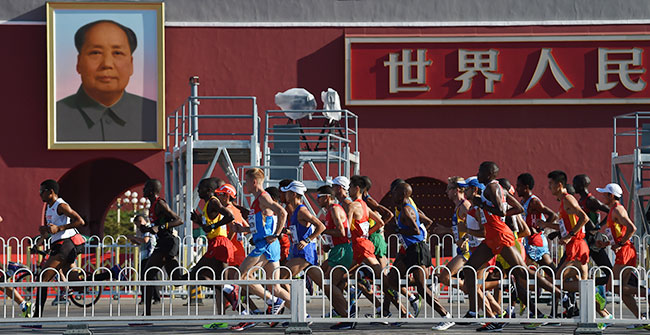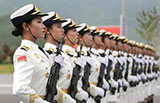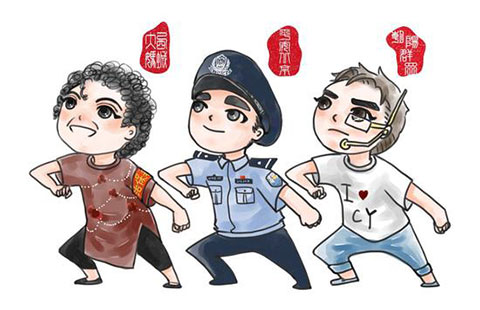Sino-Japan ties important, but not satisfactory
(chinadaily.com.cn) Updated: 2012-06-20 16:13BEIJING - People from both China and Japan are not satisfied with the current conditions of bilateral relations, with a territory dispute remaining the biggest obstacle, a recent survey has found.
The 8th Public Opinion on China-Japan Relations 2012 survey, sponsored by China Daily and the Japanese non-profit think tank Genron NPO, shows the majority of people in the two nations think highly of Sino-Japanese relations and believe economic growth can be mutually beneficial.
In China, 1,627 citizens in Beijing, Shanghai, Chengdu, Shenyang and Xi'an and 1,003 students and teachers in Peking University, Tsinghua University, People’s University of China, University of International Relations, and China Foreign Affairs University were polled. In Japan, 1,600 people, of whom 600 were intellectuals, responded to the survey.
This year’s poll shows 78.4 percent of the general public and 87.9 percent of university teachers and students in China think bilateral ties are "very "or "quite" important. This opinion is shared by 80. 3 percent of the general public and 97.2 percent of intellectuals on the Japanese side.
Despite the consensus to cement relations, a string of incidents, including border issues, seem to have cast a shadow over bilateral ties. In China, 42.9 percent of the general public believe current Sino-Japan ties are “very good” or “quite good” - a decline of 11.6 percent over last year, and whereas only 7.4 percent of the Japanese public respondents share the same opinion, falling 8.8 percent from 2011.
Over 31 percent of Chinese have a favorable impression of Japan, an increase of 3 percent over last year, but the percentage of Japanese favoring China dropped from 20.8 percent in 2011 to 15.6 percent this year. However, among students, teachers in China and intellectuals in Japan, the appreciation of each other has seen slight gains in comparison with last year. The percentage of intellectuals in Japan favoring China rises from 43.1 percent in 2011 to 49.5 percent.
About 51.4 percent of the public and 69.7 percent of students and teachers in China, and 69.6 percent of the public and 52.2 percent of the intellectuals in Japan, agree the primary obstacle hindering Sino-Japanese relations is the dispute over the Diaoyu Islands.
When asked what is the first thing they link to Japan, 51.3 percent of the Chinese public say "Japanese electronics," and 47.1 percent choose the "Nanking Massacre" following a Japanese politicians’ denials of the mass murder of Chinese citizens during World War II. What comes to mind among the Japanese public first are “Chinese food” (39.9 percent) and “Diaoyu Islands” (31.5 percent), followed by the Great Wall (26.4 percent).
Similar to the survey in 2011, 56.3 percent in China and 43.4 percent in Japan see the economic growth of the other nation as beneficial. The direct trading of the Chinese yuan and Japanese yen, which began from June 1 in Tokyo and Shanghai, has given confidence of internationalization of the Chinese currency. Over half of Chinese students and teachers think the Chinese currency will acquire a stable status as a representative Asian currency although it will not replace US dollars, and 48.7 percent of the Japanese public and 60 percent of intellectuals think the yuan will assume the same importance as the yen and the Euro in international markets.
The survey also finds both countries attach importance to non-governmental exchanges, such as in culture, education and the arts, and expect these exchanges to be furthered, especially in the fields of the arts and news media.
About 71.1 percent of the public and 50.9 percent of university teachers and students in China see the prospects for the development of ties as positive, while 58.4 percent of the Japanese public and 33.1 percent of the Japanese intellectuals are optimistic.
The annual opinion poll, the only one taken synchronously in the two countries, is part of the Beijing-Tokyo Forum which will be held from July 1 to 3 in Tokyo. The forum, co-sponsored by China Daily and Genron NPO, has been held alternately in Beijing and Tokyo since August 2005. The annual gathering is one of the most significant platforms for non-governmental communication between the two countries.
- Prisoners in line to be granted special amnesties
- WWII veterans' pensions raised
- 'Double standards' criticized
- Targets set for new Beijing, Tianjin and Hebei megalopolis
- Path smoothed for organ donors
- Scientists ponder exoskeletons
- Beijing-Tianjin-Hebei development to see marked progress: official
- China releases organ donation guideline
- Xi calls for crews not to ease up
- Self-proclaimed Chinese qigong master arrested for illegal detention







